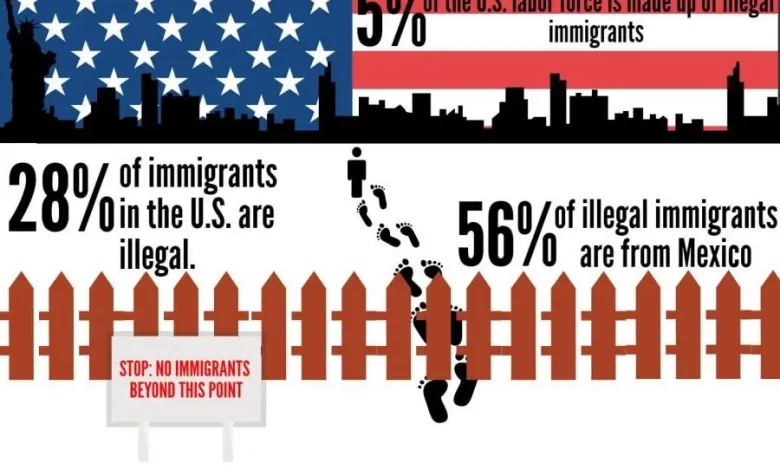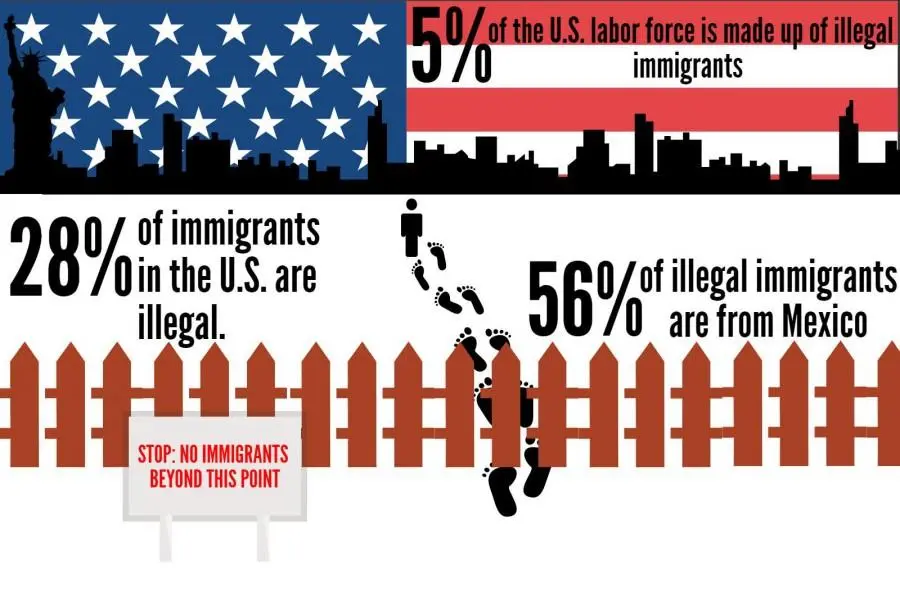How Much Money Would America Spend on Deportation?

Deporting unauthorized immigrants from the United States comes at a high cost. According to estimates, the federal government could have to pay between $100 billion and $200 billion over the course of five years to deport all 11 million unauthorized immigrants.
This covers the costs of incarceration, court cases, transportation, and law enforcement. There will also be continuous expenses for border security, monitoring, and other related tasks. These figures, however, do not take into consideration other economic losses that could have wider financial ramifications for the nation, such as decreased labor in sectors of the economy that depend on foreign labor.
1. Costs of Deportation
In addition to the direct expenses, deportation has indirect costs. Labor shortages and higher company expenses might result from deporting workers, which can have a detrimental effect on sectors like construction and agriculture. In the end, this may lead to customers paying more. Deporting parents can also cause family disruption, harm to children, and a greater need for social services. Deportation has major humanitarian consequences as well since it may force people to return to unsafe or unstable nations, where they may face human rights violations, and it may include the separation of families.
Factors such as the number of people deported, the distance traveled, and the length of imprisonment can all affect the overall cost of deportation. Mass deportation is undoubtedly an expensive undertaking with significant negative effects on the economy, society, and humanitarianism.

2. Impact on taxes and government benefits
Tax Contributions: Through income, sales, and property taxes, undocumented immigrants support the American economy. Despite frequently being unable to access Social Security and Medicare, many use Individual Taxpayer Identification Numbers (ITINs) to pay income taxes and make contributions to these programs. According to studies, undocumented immigrants pay billions of dollars in municipal, state, and federal taxes each year.
Government Benefits: The majority of government benefits, including as welfare, food assistance, and unemployment insurance, are typically unavailable to undocumented immigrants. However, things like emergency medical care and education could still have an indirect positive impact on them. They frequently do not benefit from the public assistance system to the same extent as citizens or legal residents of the United States because they are ineligible for the majority of public programs.
3. What are the long-term costs of mass deportation?
1.Economic Impact: Large-scale deportations would cause labor shortages in vital industries like construction and agriculture, upsetting supply chains and driving up prices for both consumers and companies. Economic instability and inflation may result from this.
2.Social Disruption: Families would be split up if parents were deported, which could result in emotional distress and a greater need for social services. Children and communities may suffer long-term consequences from this.
3.Decreased Tax Revenue: Both directly and indirectly, undocumented immigrants pay taxes to support the economy. Deportations in large numbers would lower tax revenue, which would affect government services and initiatives.
4.Humanitarian Crisis: Sending people to unsafe or unstable nations can result in persecution, violations of human rights, and even fatalities.
5.International Relations Damage: Deportations in large numbers may cause tensions with neighboring nations, especially those that have a large immigrant population.
6.Erosion of Trust: It may become more difficult to combat crime and uphold public safety if mass deportations destroy the trust that immigrant communities have in law enforcement.
Conclusion:
Mass deportations have serious humanitarian, social, and economic repercussions. The long-term effects of incarceration, transportation, and legal proceedings are much more significant than the immediate costs. By considering the potential impact on the economy, social fabric, and international relations, it becomes clear that mass deportation is a costly and divisive policy with limited long-term benefits.
faqs:
1. How much does it cost to deport an individual?
Deporting an individual can cost between $12,500 and $20,000. This varies depending on the length of detention, legal proceedings, and the complexity of the case.
2. Would mass deportation save money or cost more?
While mass deportation might seem like a cost-effective solution to address illegal immigration, the reality is more complex. While it may reduce immediate costs associated with social services and healthcare, the long-term economic and social costs could outweigh any short-term savings. Deporting millions of people would disrupt industries like agriculture and construction, leading to labor shortages and increased costs for businesses and consumers. Additionally, the social costs, such as family separation and increased reliance on social services, would be significant. Ultimately, mass deportation is a complex issue with no easy answers. While it may provide some short-term benefits, the long-term costs could be substantial.
3. How does deportation affect local and state budgets?
Local and governmental finances may be severely strained by deportation, as the expenses involved go beyond simple enforcement and incarceration. Since local governments are in charge of many parts of the deportation process, including as law enforcement, detention centers, and court cases, they would be mostly accountable for the financial burden.
Significant funds would be needed to establish and run detention facilities, hire more staff, and pay for legal representation at deportation proceedings. Furthermore, by displacing a sizable portion of the population, mass deportation may harm local economies by creating labor shortages, raising wages, and raising production costs for companies, particularly in sectors like construction, hospitality, and agriculture.
4. How long does deportation take in the US?
The length of time it takes for deportation in the U.S. can vary widely depending on several factors, including the individual’s legal case, immigration status, and whether they are detained or allowed to stay in the country while their case is processed. The deportation process can take anywhere from a few months to several years.
If an individual is detained, the process may be faster, as they are held while their case is reviewed. However, if an individual contests the deportation, files appeals, or faces delays due to court backlogs, it could take much longer. Additionally, factors like the individual’s country of origin, the complexity of their case, and any legal challenges they pursue can further impact the timeline.



